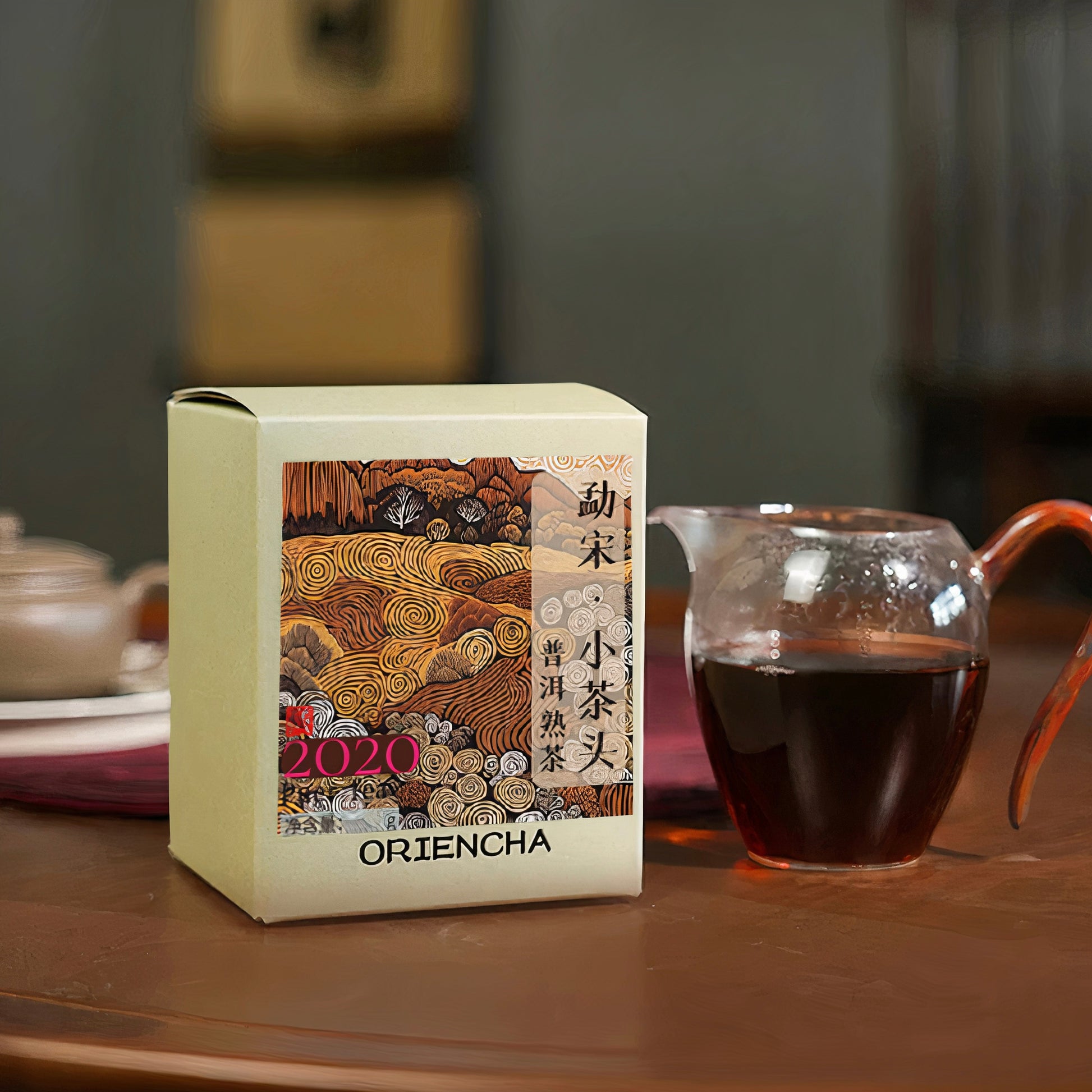Skip to product information


2020 Ruyuan Mengsong Xiao Cha Tou Pu-erh Ripe Tea
$55.00
Shipping calculated at checkout.
Weight: 100g
Origin: Menghai County, Yunnan Province
Cultivar: Yunnan Large-leaf Variety
Harvest: Spring 2020
Oxidation: Oxidized
Caffeine: Medium
Theanine: High
Catechin: Medium
Tasting Notes (5/16/2025)
Aroma: woody, fruity, aged, rich, camphor, honey
Taste: rich, full-bodied, rounded, silky, soft, viscous, sweet, smooth
Pickup currently not available








